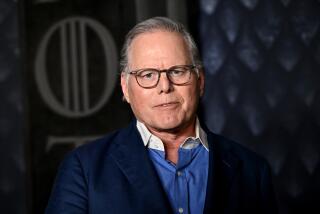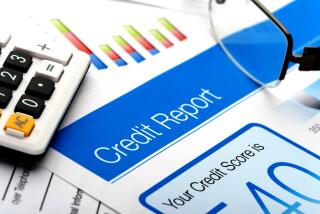This Is Your Brain on Credit
It must have been pretty irritating: 50,000 people had no sooner received “pre-approved” Discover cards when they were abruptly canceled.
Some people were incensed. One fellow (anonymous, to protect his credit standing) called to complain that he hadn’t asked for the card, had charged up $2,000 worth of furniture and stuff in good faith, and was embarrassed to learn in mid-purchase that the card was suddenly invalid. Discover, he said, shouldn’t jerk people around that way.
Indeed, as widely reported, Discover had done a big solicitation mailing in December to “pre-approved” consumers. This is standard in an industry where customers no longer seek out vendors. Why should they? They already have seven credit cards in their wallet, and new offers come in daily.
But there are always takers, and in early January, Discover mailed 50,000 cards to people who accepted the offer. Suddenly someone realized that none of these people had had a credit screening, so Discover abruptly closed the accounts on Jan. 17, and invited everyone to re-apply, subject to approval.
“Bad P.R.,” said Credit Card News, a Chicago-based trade newsletter. “A systems error,” said a Discover spokesman. Whichever, consumers got the impression that Discover, and maybe the whole industry, doesn’t know what it’s doing.
The Federal Trade Commission was even talking crime. Apparently, Discover’s retraction may violate the Fair Credit Reporting Act, which may forbid credit-issuers to back out of offers that they pitched as pre-approved.
Actually, there’s something more insidious going on here. We talk about credit cards, computer errors and consumer rights. But we’re really looking at dealers and addicts and a brief glitch in the unstoppable flow of easy credit--junk for the masses. Suppliers are pushing users to the edge.
Look at our anonymous Discover reject, who was “frankly shocked when I got the card,” given his record of piling up $8,000 in debt, much of it on credit cards, when he earned only $16,000. He’d relinquished all those cards, consolidated the debts, and paid off all but $2,000 of what he owed when Discover dropped $3,000 in new credit on him. Of course he tapped it, “to get some things I needed and get back on my feet, credit-wise.”
This young man doesn’t seem the best candidate for an open-ended, high-interest loan that permits continual adding to the debt and minimum payments on the balance. To such people, a new card is a fresh hit, each credit line a good high until it’s exhausted.
He’s the card-issuers’ kind of guy. Their best customer is a big spender who’s never fully paid off and keeps generating finance charges. “Even when I started getting into trouble,” says our Discover discard, “I still kept getting cards.”
Look too at his supplier. Discover already has 41.2 million cardholders, enough for a nice business. It wants lots more: If the 50,000 who responded were just 5% of the mailing--a good return--a million people were solicited.
And what an offer. It came from Discover’s president (the cancellations came from an accounts manager). There were credit lines of $3,000, no annual fee, and consumers need only “sign and return your Acceptance Form.”
Such mass marketing, of course, makes the credit card business increasingly high-risk, despite the high profits: Two-thirds of consumers carry balances from month to month at interest rates up to 20%. Indeed, issuers defend those high fees as necessary to cover the losses they suffer by making credit so widely available.
Discover’s unusually high-risk offer will surely bring its own punishment. The company won’t reveal the total balances rung up in that brief time, but if there were many cardholders like the guy above, there’ll be a hefty writeoff.
Do we need an FTC action? Any punishment at all? Both parties here did something dumb, and will pay for it--those who grabbed the cards and ran up big debts, and those who made it so easy. Both can easily see how to avoid any possibility of a repeat. The addict could stop using cards and buy only with money. The dealer could do better business with the cardholders it already has and stop trying to get into every pocket.
Discover’s carelessness puts into bas relief the flaws in the system. Even when the system works right, credit seems a dangerously easy indulgence: It takes little effort to get it, one is pushed to take more and more, and there’s no pressure to pay it off. Indeed, Discover is only asking our friend to pay $59 a month on his $2,000 balance; even he expected to pay “more like $80.”
It’s a dream. It looks like free money for the cardholder; it looks like profit to a card-issuer. Even if the account becomes a writeoff, the other customers will cover the loss.
A victimless crime, except that society loses. We all pay the bad debt. The economy pays for the instability of its consumers. Forget the FTC: Where is the Drug Enforcement Administration when we need it?
More to Read
Inside the business of entertainment
The Wide Shot brings you news, analysis and insights on everything from streaming wars to production — and what it all means for the future.
You may occasionally receive promotional content from the Los Angeles Times.










